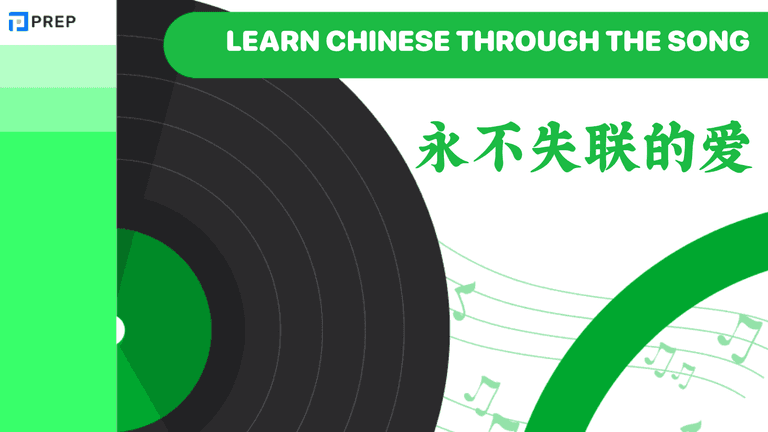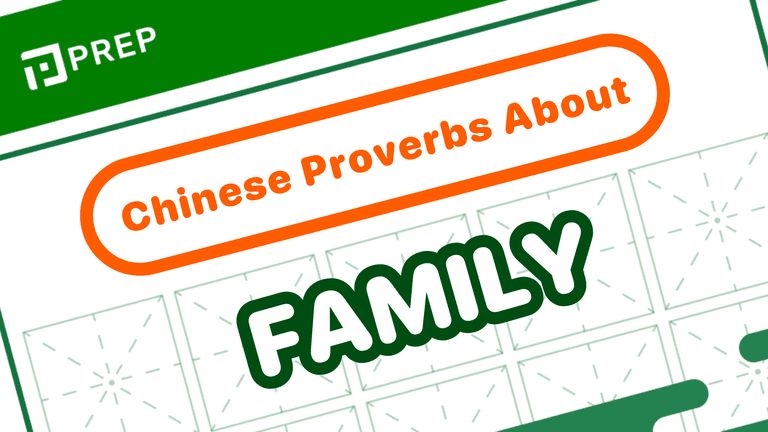How Do You Say Love in Chinese? Meaning Explained?
The word “love” in Chinese is written as 爱 (ài) and carries rich meanings beyond romance. This guide explains its pronunciation, stroke order, and variations like 喜欢 or 恋爱. You will also learn how “love” is used in daily conversations, cultural traditions, and modern expressions.
I. What Does “Love” Mean in Chinese?
In Chinese, the most direct word for “love” is 爱 (ài). It is a high-frequency character that appears in textbooks, daily conversation, and cultural expressions. However, just like in English, its exact meaning can vary depending on the context—from romantic love to general affection and even compassion.
Character: 爱 (Simplified) / 愛 (Traditional)
- 爱 in Simplified Chinese (used in mainland China and Singapore)
- 愛 in Traditional Chinese (used in Taiwan, Hong Kong, and some overseas communities)
Despite the visual differences, both forms carry the same meaning and pronunciation.
“爱” generally refers to deep emotional attachment or affection and is commonly translated as "love." It appears early in beginner-level materials, including the HSK 1 vocabulary list. The word can be used to talk about people (我爱你 – I love you), things (我爱吃中国菜 – I love eating Chinese food), or even ideas (爱自由 – love freedom).
While “爱” translates directly as “love,” its use in daily speech is more reserved in Chinese culture compared to English. Native speakers may favor more subtle ways to express affection, such as actions or softer phrases like 喜欢 (xǐhuān), which means “like.” Understanding when and how to use “爱” appropriately is key to sounding natural and culturally sensitive.
1. How to Pronounce and Write “Love” in Chinese
Learning how to correctly pronounce and write the word “love” (爱 / 愛) is essential for clear communication and cultural understanding. This section covers both aspects—speaking and writing—the character for love in Mandarin Chinese.
Pronunciation: 爱 (ài)
- Pinyin: ài
- Tone: Fourth tone (a sharp, falling tone)
- IPA: [aɪ̂]
The fourth tone in Mandarin is pronounced with a falling pitch, giving it a firm, decisive feeling. To pronounce 爱 correctly:
- Start at a higher pitch and let your voice drop sharply.
- Be careful not to flatten the tone, which could change the meaning.
- Practice comparing similar syllables: ài vs āi vs ào.
Writing: 爱 (Simplified) vs 愛 (Traditional)
The character “love” has two main forms depending on the writing system:
- 爱 (Simplified): Used in mainland China and Singapore
- 愛 (Traditional): Used in Taiwan, Hong Kong, and overseas communities
Structure of 愛 (traditional):
- Top: 爫 (zhǎo) – “claw”
- Middle: 冖 (mì) – “cover”
- Center element: 心 (xīn) – “heart” (which is omitted in the simplified form)
- Bottom: 友 (yǒu) – “friend”
Interesting note: The simplified character 爱 does not contain the “heart” radical (心), which has led to cultural commentary—some say, half-jokingly, that modern love has “lost its heart.”
Stroke Order and Writing Practice
Writing Chinese characters requires attention to stroke order. For 爱/愛:
- Total strokes (simplified 爱): 10
- Total strokes (traditional 愛): 13
- Stroke order follows the top-to-bottom, left-to-right principle
For learners, it’s useful to practice writing with stroke numbering or tracing worksheets to build both accuracy and muscle memory.
2. Variations of love in Chinese vocabulary
In Chinese, the idea of “love” extends beyond a single word. While 爱 (ài) is the core term, there are several other words that express different types, intensities, and contexts of love. Understanding these variations helps learners choose the most natural and context-appropriate expressions in conversation and writing.
|
Chinese Word |
Pinyin |
Meaning / Use |
Example Sentence |
Notes |
|
喜欢 |
xǐhuān |
To like (preference or light affection) |
我喜欢你 – I like you |
Commonly used in casual or early romantic contexts. “我爱你” may sound too strong. |
|
恋爱 |
liàn’ài |
Romantic love; to be in a relationship |
他们正在恋爱 – They are in love |
Often used as a noun; related verb: 谈恋爱 – to date. |
|
爱心 |
àixīn |
Compassion; a loving heart |
他是一个有爱心的人 – He is a kind-hearted person |
Used to describe caring nature, especially in social or charitable contexts |
|
热爱 |
rè’ài |
Deep love; passion for a pursuit or ideal |
我热爱教育 – I am passionate about education |
Stronger than 喜欢, commonly used in formal speech or professional self-introductions |
Choosing Between 爱 and 喜欢
When should you use 爱, and when is 喜欢 more appropriate? Generally:
- Use 喜欢 for hobbies, food, people you are casually fond of
- Use 爱 for family members, long-term partners, or strong emotional commitments
- Be cautious with 我爱你 early in a relationship—it tends to carry more weight in Chinese than “I love you” does in English
Recognizing the nuances in vocabulary helps you speak with not only linguistic accuracy, but also cultural sensitivity. Love, in Chinese, is expressed not only through words, but also through the choice of the right word for the right moment.
II. Using “Love” in Daily Conversations
While the character 爱 (ài) directly means “love,” its usage in everyday Chinese is more nuanced than in English. Cultural preferences for emotional restraint and indirect expressions affect how and when native speakers use this word. Learning how “love” is spoken and understood in real-life situations will help make your communication more natural and appropriate.
Saying “I love you” in Chinese
The most direct way to say “I love you” in Mandarin is: 我爱你 (wǒ ài nǐ)
This phrase is simple and grammatically correct, but in Chinese culture, it is used more sparingly—often reserved for serious relationships, emotional moments, or written messages. Unlike in English, saying "I love you" is not a daily or casual expression among family members, friends, or even romantic partners.
Alternative, softer ways to express affection may include:
- 我很喜欢你 (wǒ hěn xǐhuān nǐ) – I really like you
- 我在乎你 (wǒ zàihu nǐ) – I care about you
Tone and timing are essential; even the right phrase may feel out of place if used too soon or too frequently.
Other common phrases with 爱
Like in English, the Chinese word for “love” appears in many everyday contexts beyond romantic expression. Here are a few examples:
- 爱好 (àihào) – hobby, interest
Example: 我的爱好是看书 (My hobby is reading) - 母爱 (mǔ’ài) – motherly love
Describes deep, unconditional love from mother figures - 热爱 (rè’ài) – deep passion
Often used with abstract nouns like life, nature, education
Example: 她热爱音乐 (She is passionate about music)
These expressions show that “love” in Chinese is not limited to interpersonal emotion but also extends to interests, values, and ideals.
Polite and cultural alternatives to “love”
In daily life, Chinese speakers often avoid direct expressions like “我爱你” in favor of more subtle or behavior-based expressions of love. This cultural habit reflects values of humility, modesty, and relationship depth.
Instead of verbal declarations, individuals may convey love through:
- Acts of service (cooking for someone, helping them)
- Practical questions (Have you eaten? Do you need anything?)
- Shared responsibility and consistency
In place of “I love you,” native speakers might opt for:
- 我喜欢你 – I like you
- 你对我很重要 – You are important to me
- 我关心你 – I care about you
These alternatives reflect both emotional intent and cultural appropriateness, making them more commonly used in conversation.
III. The Cultural Meaning of Love in Chinese
In Mandarin, the word “love” is written as 爱 (ài), but the way it is used and understood in Chinese culture can differ significantly from how it is used in English-speaking societies. While love is a universal emotion, the expression of love in Chinese culture tends to be more reserved, indirect, and action-oriented. Understanding these cultural nuances is key to interpreting and using the word appropriately.
Traditional Chinese Views of Love
Historically, love in Chinese society was often less openly displayed and more intertwined with duty, family roles, and moral values. Emotional restraint, filial piety, and social harmony were prioritized even in close personal relationships.
In literature and poetry, love was often expressed symbolically, through nature imagery or literary metaphors:
- Flowers like lotus (莲花) and birds like mandarin ducks (鸳鸯) appear frequently as symbols of lasting love.
- Famous works like 《红楼梦》 (Dream of the Red Chamber) explore themes of love bound by fate, constraint, and social expectation.
Love was also more connected to the concepts of fate (缘分), harmony, and respectful commitment, rather than individual desire alone.
How “Love” Is Expressed in Modern Chinese Society
In contemporary Chinese culture, especially among younger generations, the expression of love is becoming more open—but still carries a different tone than in the West.
- Saying 我爱你 (I love you) is still considered emotionally intense and not commonly used in casual settings.
- Many people prefer to show affection through gestures and actions: sharing food, offering help, staying present.
On messaging apps and social media, people may express love in creative or humorous ways:
- Using numbers like 520 (wǔ èr líng), which phonetically resembles “我爱你” (I love you)
- Emojis, abbreviations, and phrases like “比心” (a heart gesture made with fingers)
While the younger generation may be more expressive, deep-rooted cultural values still influence how love is understood and conveyed—often through consistency, trust, and long-term responsibility.
The word “love” in Chinese may appear simple—just one character, 爱 (ài)—but its meaning, usage, and cultural depth are far richer than a direct translation might suggest. By learning how to pronounce, write, and apply “爱” in the right contexts—and distinguishing it from softer alternatives like 喜欢—you will build more accurate, nuanced communication skills.
Whether you're learning Chinese for life, for exams, or for deeper cultural connection, mastering this one word brings you a step closer to thinking and feeling in the language. Continue exploring essential words with PREP, and let your Chinese fluency grow—one expression at a time.

Hi I'm Chloe, and I am currently serving as an Product Content Administrator at Prep Education. With over five years of experience in independent online IELTS study and exam preparation, I am confident in my ability to support learners in achieving their highest possible scores.
Comment
Premium content
View allPersonalized roadmap
Most read












